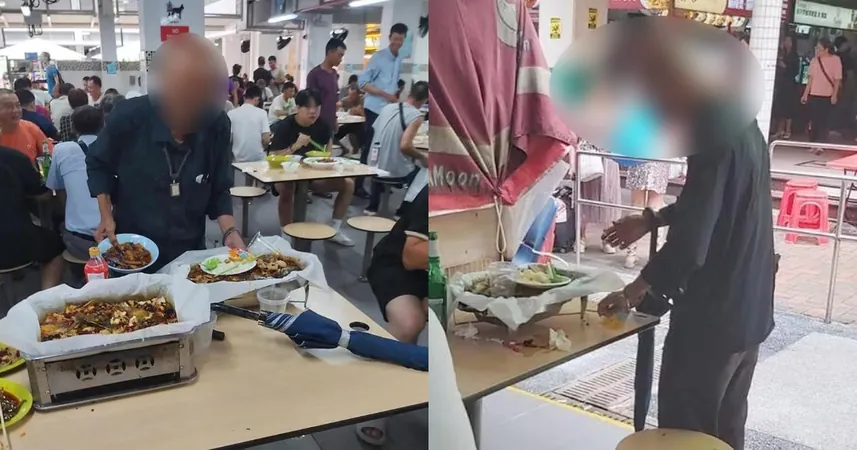
Elderly Men Turn to Leftovers in Chinatown: A Surprising Trend or Health Risk?
2024-09-19
The Unseen Table Guests
Eyewitness accounts reveal that these individuals typically frequent the hawker centre in the evening, around 8 to 9 PM. Local food vendor Mr. Du, who has run his stall for over a decade, mentioned that kind-hearted customers sometimes buy additional food to share with these men. Interestingly, Du noted that while the majority of these scavengers are elderly, there are also younger patrons joining in.
Stall assistant Ma corroborated these observations, recalling instances of one elderly man swooping in for leftovers as soon as diners leave. "Sometimes customers order too much and leave a lot on their plates, so he sits down and eats what's left," Ma explained.
However, the motives behind this behavior raise questions. Cleaner Mr. Ah Quan remarked that these men do not appear to be financially struggling, as he has seen them purchasing drinks for themselves.
One Man's Perspective
During a recent visit, a Shin Min reporter encountered an elderly man named Mr. Wang, who shared his story. At 84 years old, Wang resides in Pasir Ris and has made a habit of visiting Chinatown daily. "I have a family and children, but it's livelier here," he stated. He openly admits to consuming leftovers, not out of necessity, but to prevent food waste. "Some people order a lot but cannot finish their food... I thought it was a waste, so I ate it. The food was still hot," he added.
Wang emphasized that he has observed others engaging in the same behavior but noted that everyone generally respects each other's space.
A Health Concern?
Although the practice may seem harmless, Daniel Tay, a freegan, warns of potential health risks associated with eating leftovers. Tay explained that there are numerous factors that could lead to food poisoning, such as contamination from pests or improper handling by the original diners. "If they still want to do it, it is at their own risk," he cautioned.
Tay suggested a safer alternative for those wishing to avoid waste: approaching diners directly while they're still at their tables to ask if they can have their leftover food. "This would ensure that the food is still clean and good to eat, and raise awareness among diners about the waste they generate," he said.
Conclusion: A Balancing Act
While the practice of eating leftovers might serve a noble purpose of reducing food waste, it also raises important health concerns and questions about the social dynamics around food consumption in urban areas. As society continues to grapple with the issues of food waste and homelessness, the situation at People's Park Centre reflects a complex intersection of needs, values, and health considerations that warrants further discussion.






 Brasil (PT)
Brasil (PT)
 Canada (EN)
Canada (EN)
 Chile (ES)
Chile (ES)
 España (ES)
España (ES)
 France (FR)
France (FR)
 Hong Kong (EN)
Hong Kong (EN)
 Italia (IT)
Italia (IT)
 日本 (JA)
日本 (JA)
 Magyarország (HU)
Magyarország (HU)
 Norge (NO)
Norge (NO)
 Polska (PL)
Polska (PL)
 Schweiz (DE)
Schweiz (DE)
 Singapore (EN)
Singapore (EN)
 Sverige (SV)
Sverige (SV)
 Suomi (FI)
Suomi (FI)
 Türkiye (TR)
Türkiye (TR)